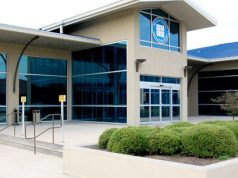By Glenn Ellis
There are several different types of COVID-19 vaccines in development; but what do they really do?
All of them are expected to teach our immune systems to recognize and fight the virus that causes COVID-19. Sometimes this process can cause symptoms, such as fever. We know the usual symptoms that the body is building protection against the virus that causes COVID-19. But what else should we be on the lookout for?
Some folks are trying to figure out what do because they may have had COVID-19. You should consider taking the vaccine regardless of whether you already had COVID-19. That’s because even the experts don’t know how long you are protected from getting sick again after recovering from COVID-19. They do know that even if you have already recovered from COVID-19, it is possible—although rare—that you could be infected with the virus that causes COVID-19 again.
As reported by AARP, the most recent data from the Centers for Disease and Control Prevention reveal that the side effects from COVID-19 vaccines were as expected and not serious among the vast majority of the first 22 million people who received either the Pfizer or the Moderna version. The Johnson & Johnson vaccine (one-dose) became the third COVID-19 vaccine to be authorized for emergency use in the United States. These three vaccines that have received Emergency Use Authorizations (EUAs) from the U.S. Food and Drug Administration and are so far the only products available to Americans.
While the Pfizer and Moderna shots have a lot in common, the new Johnson & Johnson vaccine has some notable differences. One of the most notable results of the J&J vaccine was that it was 100 percent effective at preventing hospitalization and death from the coronavirus four weeks after receiving the one-dose vaccine.
The Pfizer and Moderna vaccines, both, use mRNA technology to build immunity to COVID-19. This technology is not new to science and medicine; clinical trials using mRNA have been going on for vaccines to fight influenza, Zika, and rabies for decades – but this is the first time it has been used in humans as a vaccine.
When it was given an EUA, the FDA granted it based on the data that showed that the first shot starts building protection, while the second shot “is needed to get the most protection the vaccine has to offer. The Johnson & Johnson shot is a type of viral vector vaccine. Viral vector vaccines have been since the 1970’s against different infectious diseases, including Zika virus, influenza viruses, respiratory syncytial virus (RSV), HIV, and malaria. There were two Ebola vaccines using viral vector technology during the Ebola outbreaks in West Africa and the Democratic Republic of the Congo.
Ok, now you got the big picture, let’s get to question we all have: When will I be protected from catching COVID-19?
The CDC cautions us to remember that the vaccine doesn’t work right away. You are not considered appropriately protected after the first shot. It takes up to two weeks after the second shot for your immune system to fully respond to a vaccine and provide protection against an infectious disease. And yes, you still have to wear a mask after you get the COVID-19 vaccine. Until enough people have developed immunity to the virus, either through vaccination or by getting and recovering from COVID-19, we all must continue to be vigilant in sticking to the safety precautions.
Like most of you, we have heard of some folks who were in bed, feeling lousy for a day or so after getting their vaccination (usually the second dose). If you find yourself experiencing side effects, it doesn’t mean that you have COVID-19; that’s a sign that your immune system is responding to the vaccine.
The vaccine has tricked it into thinking that it is being invaded by COVID-19. In response, the immune dispatches “fighters” to deal with the intruders. Once, this happens, the “fighters” develop specific skills to destroy the COVID-19 virus. However, once they arrive, they find out it was a false alarm of sorts. The good news is that from that point onward, for the rest of your life, your immune system has a battalion of fighters that are ready, armed, and prepared to destroy COIVD-19.
Now, I’ll just do what I did when I was taking an exam in grade school; save the hardest question for last: How long are you immune after getting the COVID-19 vaccine? This is a question that still has the scientists and researchers scratching their heads.
The short answer – no one knows. It’s complicated; like everything else about this pandemic. There have been some people who were infected with COVID-19 whose antibodies dropped within a few months of recovering. There is no conclusive data on the strength of their immunity, or if last significantly longer. There have even been a few people who caught COVID-19 twice; but I do mean a few; this is very unusual.
I leave you with this last bit of food for thought.
We currently in a pandemic and have vaccines with the promise of upwards of 95 percent effectiveness. We know that we will all only be safe when, and only when, we have enough people either vaccinated or to have been infected, and now have antibodies. Approximately, 5 percent of us are going to be protected if, and only if, the stars align, and we reach herd immunity – real fast. Sounds like a big gamble to take.
Glenn Ellis, MPH is a visiting scholar at The National Bioethics Center at Tuskegee University and a Harvard Medical School Bioethics Fellow. He is author of Which Doctor? and Information is the Best Medicine. For more good health information visit: www.glennellis.com




